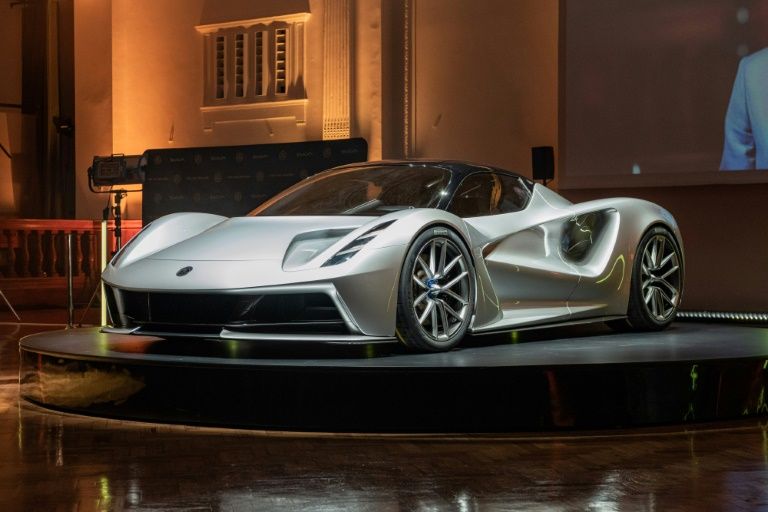Lotus looks to an electric future with Alpine deal
London (AFP) – A co-operation deal between British sports car maker Lotus and Alpine, owned by French giant Renault, is driven by a need to share supply chains and production facilities.
The joint venture was announced last week and is aimed at accelerating the two firms’ electrification strategy.
Chinese-owned Lotus makes all its cars in Britain, which is being hit by supply-chain delays following the country’s recent exit from the European Union’s single market and customs union.
But Lotus has enjoyed a solid 2020 despite fallout from the coronavirus pandemic.
AFP spoke to Uday Senepati, executive director corporate strategy and product management at Lotus.
– What’s the aim of the deal? –
“We are partnering on several aspects, the main one being an all electric sports car backbone (chassis) which will be done by Lotus engineering.
“It will give us our line of sports car in the middle of this decade. We will be looking at launching a new electric sports car on this platform.
“Alpine will be developing their own sports car with us, which we will lead the development for.
“We have a great expertise in motor sports, they have great expertise in aerodynamic powertrains with lots of electrification on race tracks.
“Formula One is another area that we are exploring but this is not the main focus.”
– How are the firms’ electric ambitions going?
“We will go all electric, I can’t put a timeline to it yet.
“We are also talking about tackling the environmental footprint of all our operations.
“We have done a partnership with (British Gas-parent) Centrica on a deal for our energy supply to make sure our carbon footprint is zero or better in the next decade.
“That’s what we’re working on.
“In 2028 we will be 80 years old as a company and we are aiming at that point in time to be there in terms of our carbon footprint.
“There have been challenges with the launch of (our first electric model) Evija and testing the car with the (Covid) travel restrictions.
“The car has to be developed with testing it across the globe… it’ll go into production and commercialisation this year.
“There will be only 130 of them… at a base price of £2.0 million ($2.7 million, 2.2 million euros).”
– How are you coping with the Brexit transition? –
“We have very strong shareholders especially (our Chinese parent) Geely who has not just committed but has been spending a great deal on developing products.
“The Chinese market is going well, Geely is doing extremely well so this commitment is solid.
“If you want to battle a crisis yourself you are going be in trouble. Partnerships are going to be key and Lotus has a history of partnerships. We are open to more.
“2021 is going to be extremely challenging for the industry. We have to work together to brace for those challenges. Lotus engineering is firmly positioned to work with many others but we stand in a good position.
“Our results from 2020 show we’ve done extremely well. We grew 4.4 percent in our sales in our most difficult year in recent times. I cannot say 2021 will be much better.
“We did not see a massive effect from Brexit. We don’t see a massive disruption (to supplies).
“The partnership with Renault will work well there since Renault has got a big supply-chain footprint and this partnership will help us.
“With Renault we have access to their industrial footprint as well as in Europe if needed.”
Disclaimer: Validity of the above story is for 7 Days from original date of publishing. Source: AFP.


